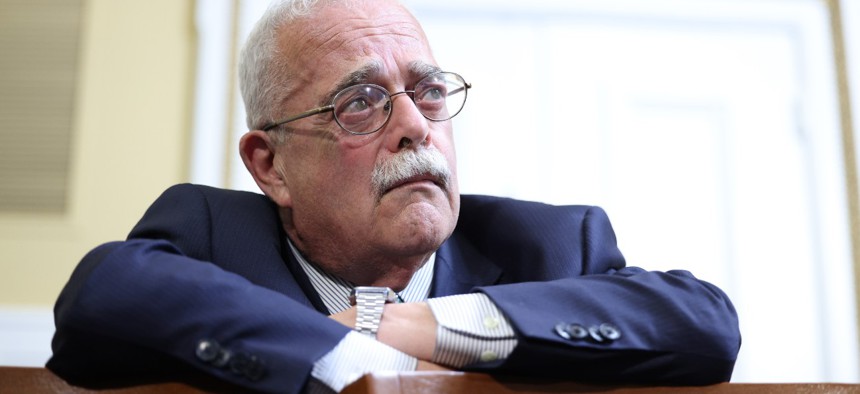
Rep. Gerry Connolly, D-Va., led the Democrats in writing the letter. Anna Moneymaker/Getty Images
More Than 60 Democratic Lawmakers Want a 5.1% Raise for Feds
The lawmakers asked the leadership of the House Appropriations Committee to override President Biden’s plan to offer an average 4.6% raise for federal employees in 2023.
A group of 62 House Democrats on Tuesday urged congressional appropriators to provide federal employees with a 5.1% pay raise in 2023, breaking with President Biden.
As part of his fiscal 2023 budget proposal, Biden proposed an average pay increase of 4.6% for civilian federal workers and members of the military, which, if implemented, would mark the biggest raise the federal workforce has seen in 20 years. Although it is unclear how that raise would be broken up between across-the-board increases to basic pay and an average boost to locality pay, traditionally, 0.5% of the pay raise has been set aside for locality pay increases.
In a letter, House Democrats led by Rep. Gerry Connolly, D-Va., pressed the leadership of the House Appropriations Committee to go further than the president and endorse a 5.1% average pay increase for feds, reflecting legislation introduced by Connolly and Sen. Brian Schatz, D-Hawaii, that would grant federal employees a 4.1% across-the-board boost to basic pay and a 1.0% average increase in locality pay.
Although the lawmakers applauded Biden’s efforts since taking office to improve federal employee compensation, including a 2.7% pay raise in 2022 and establishing a $15 minimum wage for all federal employees and contractors, they said that more needs to be done to counter the “chronic underinvestment” in the federal workforce over the past decade, particularly after two years of a global pandemic and growing inflation.
“Throughout the pandemic, civil servants performed the essential work of the federal government under the most extraordinary circumstances,” they wrote. “Federal government employees risked exposure to COVID-19 to deliver mail, collect census responses, provide health care to veterans, distribute lifesaving stimulus benefits, inspect meat and poultry facilities, and help research therapies and vaccines for COVID-19.”
The lawmakers argued that improving pay will be critical to making the federal government more competitive as it seeks to dramatically boost hiring, both as part of implementation of the bipartisan infrastructure law and to counter years of shrinking agency workforces.
“Currently, only 7% of the federal workforce is under the age of 30 while the civilian labor force enjoys nearly three times that number,” they wrote. “In 2020, the Federal Salary Council stated that federal employees make an average of 23.1% less than their private sector counterparts. With almost a third of the federal workforce eligible to retire in five years, we will face a talent crisis if we fail to make basic investments in federal pay that will attract early career talent to federal government service.”
NEXT STORY: When the Sum in a Lump Sum Payment Falls Short







